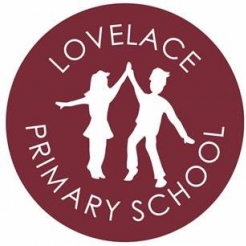
Organisation: Lovelace Primary School
Intervention: Catch Up® Numeracy
Submitted by: Emma Sedgwick
Background
Lovelace Primary School is a large 3-form entry community Primary school with nursery, in the south of the borough of Kingston upon Thames. It is a diverse cultural community with children from many different faiths and backgrounds. We have a very positive ethos and believe that each child can be encouraged to achieve their very best. We chose the Catch Up® Numeracy intervention as we were aware that some children were not making expected progress due to gaps in their mathematical knowledge, and we felt that Catch Up® was the right intervention to address these gaps. One-to-one intervention works very well for some children who need a little extra care and attention during the school day.
Implementation
We have a very busy programme of Catch Up® Numeracy, currently involving one qualified experienced teacher, three TAs and over 15 children from Y3 to Y5. The sessions are timetabled at various points throughout the day, generally avoiding numeracy lessons, and are delivered in a quiet space away from the noise of the classroom.
The teacher coordinates the intervention across the school and currently delivers Catch Up® to two children, both of whom are in receipt of the Pupil Premium Grant. The staff involved were identified as those based in certain year groups where there was need of Catch Up®, but also because they were willing and able to commit the time to training and ongoing CPD, and dedicated to the correct implementation of the intervention. We meet as a team at the end of each term to discuss the children and their progress. We also meet informally and regularly throughout the term to share concerns and ideas. I observe each of the TAs delivering a Catch Up® session once a term and I, in turn, am observed delivering a session by the other accredited deliverer, and by an assistant headteacher who also has responsibility for maths across the school.
Several children from year groups 3, 4 and 5 were identified by the class teachers as possibly benefitting from Catch Up® intervention, based on their steps of progress and general attitude to maths in class. The number age tests were then administered to each child and those with the biggest difference between chronological and number age were identified to begin the intervention. The progress of the learners is then monitored continuously using number age tests, standardised school-administered tests and general progress in class. There is constant liaison with the class teacher.
When we started the intervention at Lovelace, I ran a staff meeting with other members of the teaching staff to raise awareness of Catch Up®. Parents were invited to a meeting and to view their children’s work so far. I report back after each term to the headship team, in order to monitor progress.
Case Study 1 - Catch Up® Numeracy
Child A began Catch Up® Numeracy in October 2015. She lacked confidence in maths lessons, was very quiet and not willing to ‘have a go’. She viewed herself as “Not good at maths.” Her number age was recorded as 5 years 11 months in September, with a chronological age of 9 years 1 month. She began the Catch Up® intervention with me, and when re-tested in March 2016, her number age had risen to 7 years 5 months – a gain of 1 year and 6 months, in just 6 months of intervention.
Child A’s class teacher noted that she was more willing to put her hand up and respond to questions in class, and that her effort in maths had improved.
Child A continued with Catch Up®and was retested in July 2016. Her number age had increased to 10 years 1 month – a further gain of 2 years 8 months in just another 4 months, and exceeding her chronological age by 3 months!
Aims
Lovelace is a community which seeks to provide a very happy, caring and stimulating environment where all our children are encouraged to achieve their full potential. This forms the very centre of our school life and together in partnership with home, school and community we aim to share, nurture and pass on our beliefs to our children through example, behaviour and teaching. We aim to provide an excellent child-centred education, building upon the foundations already laid in the home. We aim to encourage a social awareness so that our children promote harmony and understanding for all people regardless of ability, gender, ethnicity or faith.